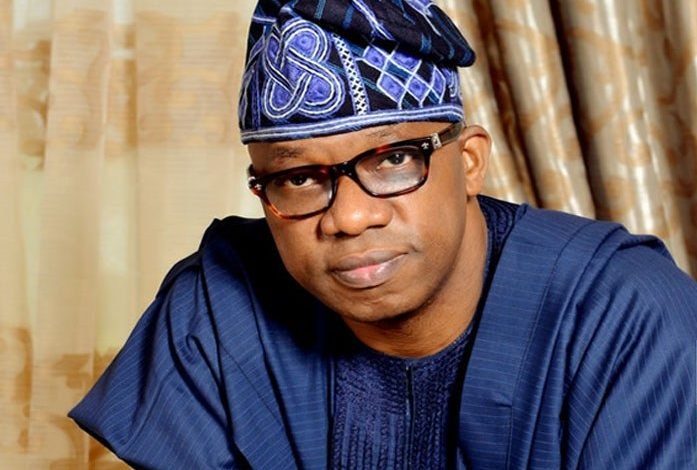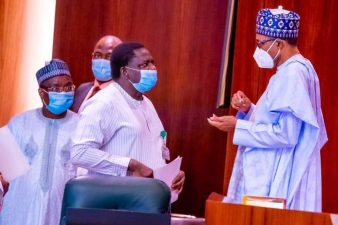By Abdulwarees Solanke
Open a map of Nigeria and take a deep look at the location of Lagos State. You will find it almost completely wrapped up in the bowels of Ogun, from the east to West except at its underbelly washed by the Atlantic Ocean. You’re likely to wonder if Lagos was necessarily a separate part of Ogun State.
Lagos is metaphorically inside the gateway state, reputedly the land of Nigeria’s icons. But on the flip side of this physical geography of the two sisterly states in Nigeria’s southwest is their socio-economic architecture. Lagos is the domineering economy, even defining the socio-cultural landscape of the other.
One town in Ogun that illustrates this best is Ota. It is like an extension of Lagos. Ota, the Awori homeland and a bustling town in the Ogun West Senatorial Zone, can be rightly described as the heartbeat of the economy of Ogun State. This is because of the concentration or localization of industries, in fact reputed to be third in the hierarchy of location with such industrial hubs in Nigeria.
Ota is not just home to the largest number of industries in Ogun state. It is also rising to be a haven for quality education with the number of private universities, large followership religious centres and award-winning secondary schools. Its proximity to Lagos is rubbing off on her as a result of population and economic drift from the former federal capital.
Economically, for the State therefore, this ordinarily should be a positive development, It should challenge the government to devise policies and programmes that would reduce the impact of urbanization and economic migration on Ota and convert tat proximity to opportunities as it is witnessing a population explosion.
What are those opportunities? Mainly, they are in revenue generation into the state coffers, the corollary to which is that Ota must be a livable city with encouraging public and physical infrastructure and social amenities, in the quality and network of roads, reliable electricity supply, public water provision, modern markets, state-owned schools and hospitals.
These are positive externalities that the proximity of Ota to Lagos should bring. But my comments today are informed by the seeming utter neglect of Ota especially in the state of two arteries of roads there. First is the Sango-Atan-Idi Iroko Road that also branches towards Igbesa and Agbara, arguably the state cash cow in terms of revenue because of its industrial concentration. To describe it as a death-trap is an understatement.
The Sango-Atan section for instance is less than 25 kilometres. But you can have the misfortune of spending two hours on a segment of the road called Obasanjo. On this segment is the State hospital and I just bean imagining the fate of people in emergency condition rushing to the hospital. Obviously, avoidable mortalities must have been recorded trying to access health at a facility with the misfortune of location on a deplorable road.
The second is the Ijoko Road that links Ojodu-Berger. This can be rightly described as a case study of white elephant. Yet it could have served as the fastest access into Mainland Lagos. Beyond Ota however are other Ogun border towns in such Local governments as Obafemi Owode Ifo, Sagamu, and Ijebu Ode nestling Lagos.
From these satellite, people commute to Lagos on a daily basis or while residing in transit in Laos during working days, spend their weekends and holidays in Ogun where they are fully based or settled their families. The two states may have their borders clearly demarcated or delineated, bur functionally or practically have flowed or merged into one another. It’s now wit seamless affair.
Agbara is even a funny case, just as Alimoso and Ogijo. Agbara is in Ogun State yet is where many companies with corporate headquarters in Lagos have their factories. Ogijo is indeed Remoland but now an extension of Ikorodu and of course Alimoso the bastion of Awori in Lagos has fused with the Awori in Ota.
What should this reality have spelt for both states? It should have led to strategic initiatives for development partnership between the two states. Ideally, the two states should grab the opportunity of their proximity to jointly invest in housing projects, inter-state mono or lit rail infrastructure and agricultural programmes, while jointly promoting their investment opportunities.
The two governments should have regular engagements on trans-border patrol, sharing information on crime control and expertise on issues of common concern including taxation and revenue generation. I assume there is a thinking or efforts along tis line but I see them as too feeble to bear significant fruits as what Ota seems to be witnessing is more negative externalities of industrialization and urbanization. These manifest in rising crime wave, infrastructural challenges and benumbing cost of living.
Ironically, this is not peculiar to Laos and Ogun. The Federal Capital Territory and Nasarawa State make another good example of were development partnership should be demonstrated. So far however, Ogun State may physically and practically envelope Lagos, but metaphorically presents a picture of an economic extension of the former seat of power. What will however pay both is a symbiosis in development initiatives or partnership to achieve a win-win, a sort of Marshal Plan.
Now Ogun is still a loser, soaking the pressures of Lagos rather than making the best of such stress. But to make the best the Lagos stress and pressure on Ogun is so simple. The government should concentrate infrastructure or develop partnership with Lagos on infrastructure provision in the border or satellite towns.
The recent completion of Osi Ota Road by the current administration in Ogun State, linking Ikola in Alimoso Local government of Lagos is just one example of such initiatives that can earn Ogun more benefits or positive externalities of proximity to the Centre of Excellence and state of aquatic splendour. Needed are more of such projects.
*Abdulwarees Solanke, Assistant Director, Strategic Planning & Corporate Development, Voice of Nigeria. 08090585723




